Covid inquiry – live: George Osborne claims austerity had ‘positive’ effect on UK’s ability to withstand Covid
Austerity had a “positive” effect on the UK’s ability to withstand the Covid-19 pandemic, former chancellor George Osborne has claimed.
In his witness statement submitted to the Covid inquiry, Mr Osborne said austerity had a positive effect because it meant public finances recovered.
“Reducing the deficit and placing debt as a percentage of GDP on a downward path was also essential to rebuild fiscal space to provide scope to respond to future economic shocks,” Mr Osborne said.
“I have no doubt that taking those steps to repair the UK’s public finances in the years following the financial crisis of 2008/09 had a material and positive effect on the UK’s ability to respond to the Covid-19 pandemic,” he continued.
George Osborne is giving evidence to the Covid inquiry today after a doctor’s union said the former chancellor must be “taken to task” over austerity-era decisions that “left us so unprepared” for the pandemic.
It comes after David Cameron said he is “desperately sorry” for the loss of life during the pandemic on Monday.
Key Points
George Osborne gives evidence at Covid inquiry
Osborne 'completely rejects' austerity resulted in depleted health and social care
George Osborne claims austerity had ‘positive’ effect on UK’s ability to withstand Covid
There was no planning for a lockdown, says Osborne
‘Mistake not to look at other types of pandemic,’ says David Cameron
15:08 , Katy Clifton
We are pausing our live updates for this afternoon, you can read more on the Covid inquiry here.
Goerge Osborne concludes evidence
13:10 , Martha Mchardy
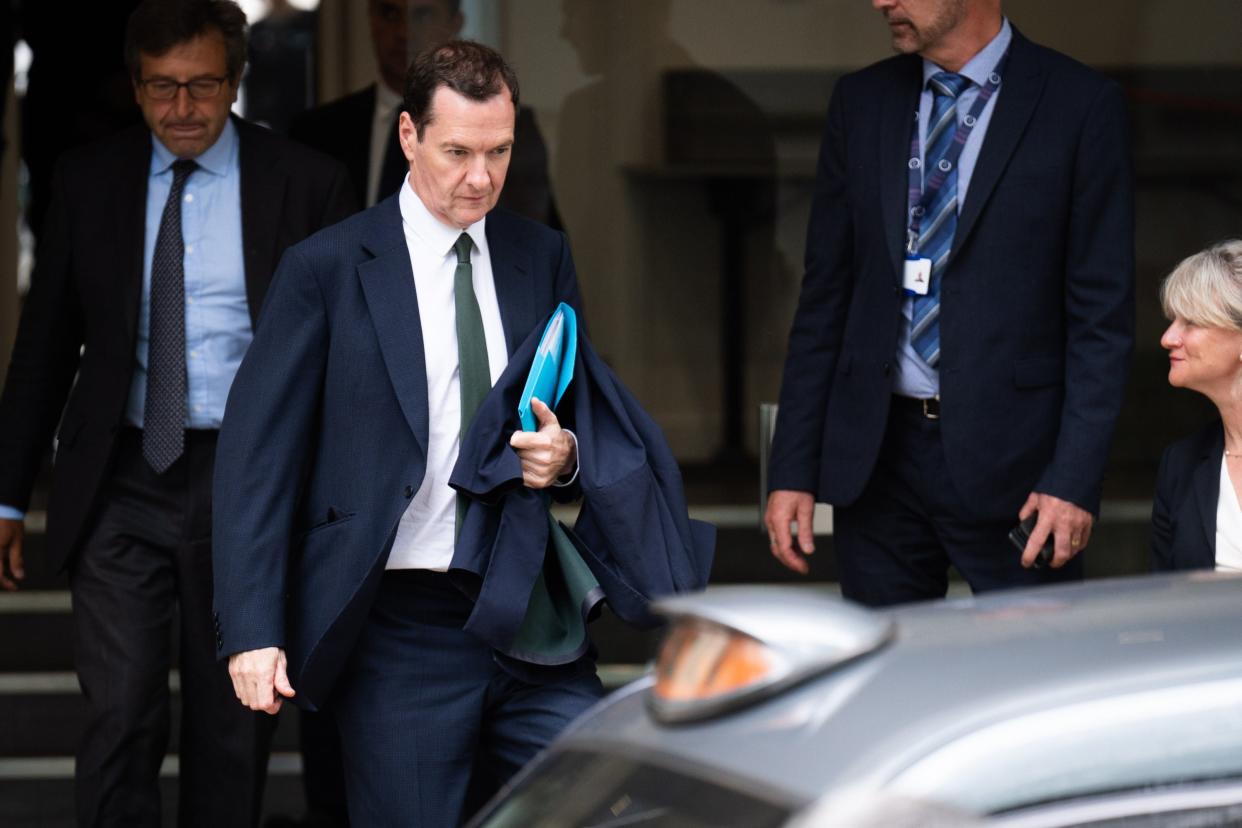
Former chancellor George Osborne has now finished giving evidence to the Covid inquiry.
Economic planning focused on sickness absence - not potential lockdowns - Osborne
13:19 , Martha Mchardy
In the final question, Mr Osborne was asked whether government economic pandemic planning focused on sickness absence - not the effects of lockdowns or social distancing.
Mr Osborne said he agreed this is the case, but said no Treasury in the world prepared for a lockdown.
He said: “Through the [austerity] programme we pursued we created the fiscal space so we could end up spending £370bn to help people deal with the adverse effects that the lockdown introduced.”
‘We prioritised health,' says Osborne
13:07 , Martha Mchardy
Asked if NHS funding “simply wasn’t enough,” Osborne replied: “No, I don’t accept that.”
He continued: “What I accept is that you could spend more money on the NHS... but you have to make a calculation balancing the resources each of those services get and the central calculation which every household has to make is what can we actually afford.
“I think we prioritised health.”
Osborne 'completely rejects' austerity resulted in depleted health and social care
12:46 , Martha Mchardy
George Osborne has argued that his austerity programme while chancellor made Britain better prepared to weather the coronavirus pandemic.
Inquiry barrister Kate Blackwell KC asked: “Do you agree by the time Covid-19 hit the consequences of austerity were a depleted health and social care capacity and rising inequality in the UK?”
Mr Osborne said: “Most certainly not, I completely reject that.
“I would say if we had not done that Britain would have been more exposed, not just to future things like the coronavirus pandemic, but indeed to the fiscal crisis which very rapidly followed in countries across Europe...”
He said he needed to repair the “seriously impaired public finances” following the “massive economic shock” of 2008.
“If we had not had a clear plan to put the public finances on a sustainable path then Britain might have experienced a fiscal crisis, we would not have had the fiscal space to deal with the coronavirus pandemic when it hit...”
George Osborne defends austerity measures
12:37 , Martha Mchardy
George Osborne reiterated his defence of the austerity measures he oversaw as chancellor between 2010 and 2016.
Giving evidence at the UK Covid-19 Inquiry, he said: “The one thing I’m sure of is there’s no point having a contingency plan you can’t pay for.
“And absolutely central to all of this is the ability of your economy and your public finances to flex in a crisis.”
Poorer countries couldn't afford lockdowns - we could, Osborne says
12:31 , Martha Mchardy
When a crisis hits, Mr Osborne said: “You need to be able to respond… and throw large amounts of public funds at the problem… without a fiscal or financial crisis.”
Mr Osborne said he believes this happened in the UK during the Covid pandemic.
He added: “Poorer countries in the world were not able to afford lockdowns or provide loans for businesses to stay in operation.”
There should have been a lockdown plan - Osborne concedes
12:24 , Martha Mchardy
Asked “Should there have been a plan, blueprint or playbook” from the Treasury when something like the pandemic occurred, Osborne replied: “In hindsight, yes”.
There was no planning for a lockdown - Osborne
12:10 , Martha Mchardy
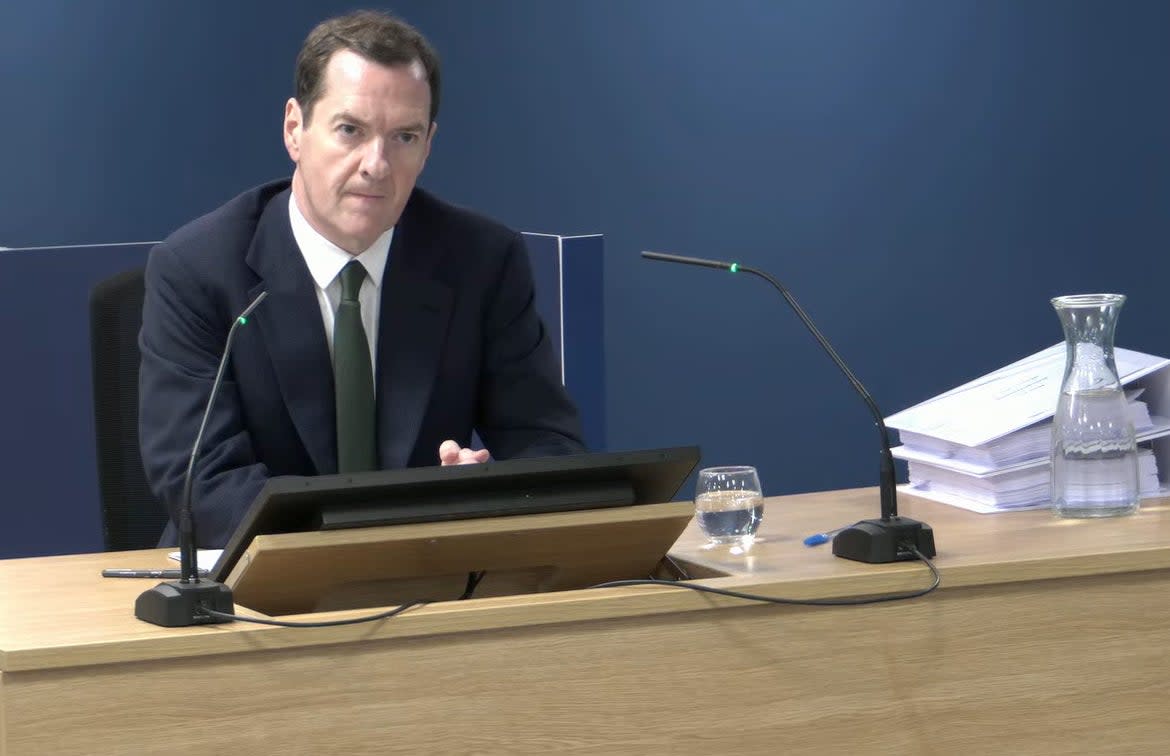
“There was no planning for a lockdown,” George Osbourne has said, but questioned whether such a plan would have led to a better furlough scheme anyway.
The UK had a plan for an influenza pandemic, he said.
He added that the Treasury did not plan to ask the public to stay home for months.
The former chancellor told the inquiry: “You’re absolutely right there was no planning done by the Treasury for asking the entire population to stay at home for months and months on end, depriving large sectors of the economy like hospitality for months,” he says.
“If someone had said ‘you the UK government should be preparing for a lockdown that might last for months’ then I’ve no doubt the Treasury would’ve developed the schemes it did around furlough and loans.”
He added that “it isn’t fair to blame someone directly.”
George Osborne claims austerity had ‘positive’ effect on UK’s ability to withstand Covid
12:05 , Martha Mchardy
Austerity had a “positive” effect on the UK’s ability to withstand the Covid-19 pandemic, former chancellor George Osborne has claimed.
In his witness statement submitted to the Covid inquiry, Mr Osborne said austerity had a positive effect because it meant public finances recovered.
“Reducing the deficit and placing debt as a percentage of GDP on a downward path was also essential to rebuild fiscal space to provide scope to respond to future economic shocks,” Mr Osborne said.
“I have no doubt that taking those steps to repair the UK’s public finances in the years following the financial crisis of 2008/09 had a material and positive effect on the UK’s ability to respond to the Covid-19 pandemic,” he continued.
George Osborne is giving evidence to the Covid inquiry today after a doctor’s union said the former chancellor must be “taken to task” over austerity-era decisions that “left us so unprepared” for the pandemic.
Osborne offers 'heartfelt sympathy' to COVID-bereaved
11:50 , Martha Mchardy
George Osborne began his session by saying: “I just wanted to express my heartfelt sympathy for those who lost loved ones during the pandemic – and for those who feel things could have been done differently.
“I hope the inquiry gets to the bottom of what those things might have been.”
Watch live: George Osborne gives evidence to Covid-19 inquiry
11:49 , Martha Mchardy
Watch live as George Osborne gives evidence to the Covid inquiry on Tuesday, 20 June.
The former chancellor must be “taken to task” over austerity-era cuts that left the country “so unprepared” for the pandemic, according to a doctor’s union.

Watch live: George Osborne gives evidence to Covid-19 inquiry
11:45 , Martha Mchardy
Former chancellor George Osborne is now giving evidence.
Sir Oliver Letwin’s evidence concludes
11:34 , Martha Mchardy
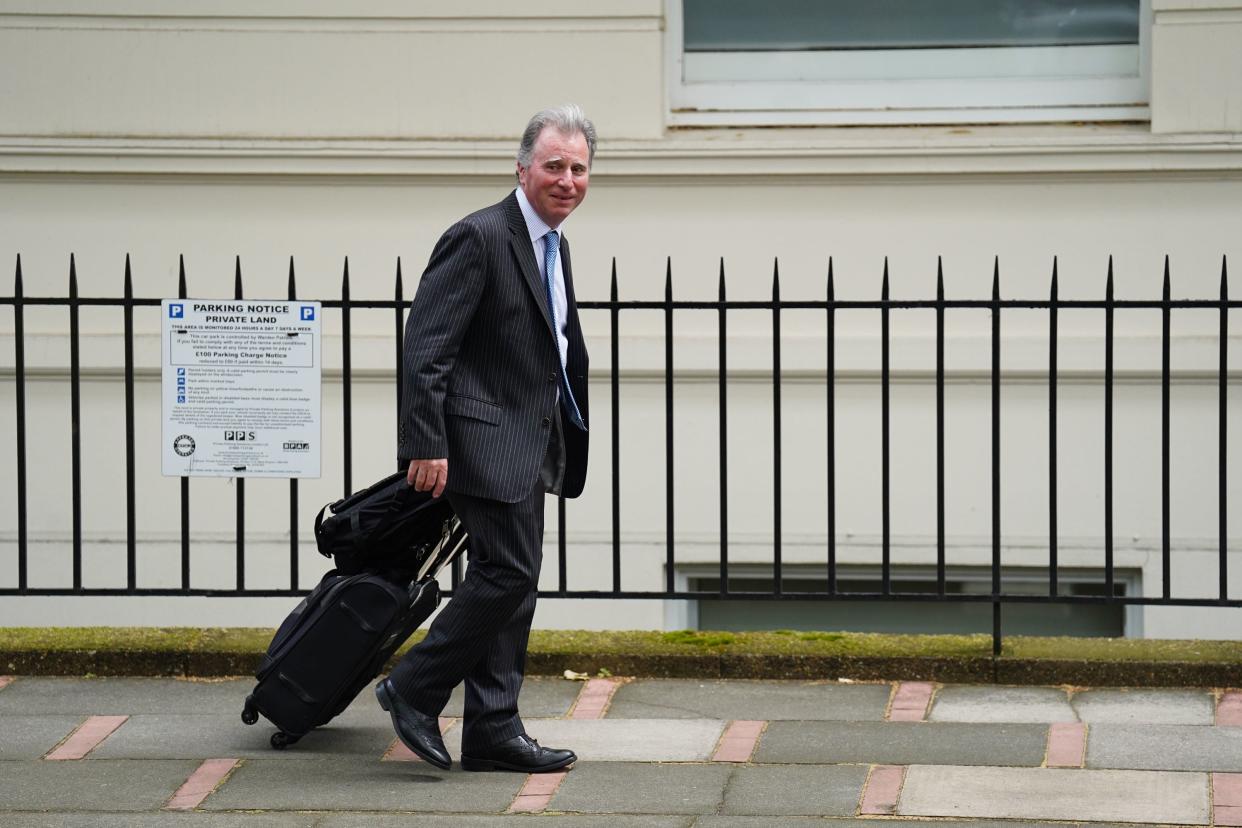
Sir Oliver Letwin has now finished giving evidence to the Covid inquiry.
Former chancellor George Osborne is up next.
Pandemic exercises every five years would be ‘pretty good’ - Letwin
11:33 , Martha Mchardy
Asked if the UK and government should regularly practise responding to whole-scale emergencies, Letwin agreed that if every five years we exercised for the impact of “an unknown but ghastly virus or agent... that would be pretty good”.
“But if you had for each domain one exercise every five years, you’d be having an exercise at least every year,” he said.
‘No friction’ with devolved nations on emergency planning, says Letwin
11:32 , Martha Mchardy
Sir Oliver Letwin has said there was “no friction” with the devolved nations over emergency planning.
He said there was “repeated involvement of the devolved administrations” when it came to specific crises like Ebola and fuel delivery during his time in government.
However, Letwin said he was not actively involved in planning in Wales.
“As it happens, in the other cases I was dealing with, Wales was not a particularly material issue,” he said.
Officials thought PPE for flu would work for coronaviruses, inquiry hears
11:07 , Martha Mchardy
The inquiry was shown a memo from January 2013 to the Civil Contingencies Secretariat, which says “stockpiles of countermeasures for influenza pandemic disease provided protection from other non-influenza pandemic disease”.
Letwin agreed with Hugo Keith KC that it was “plainly an issue” that the government believed PPE for flu would also work for coronaviruses such as Covid-19.
He adds: “It looked as though… and it seems so ludicrous in retrospect… that there was a consensus that this was under control.”
Need to focus on impact on vulnerable people - Letwin
11:04 , Martha Mchardy
When emergencies happen, Letwin says it is the impact government needs to deal with.
He said: “In particular the most vulnerable people, the people who are vulnerable to that impact. Unless you focus on impacts, you can’t focus on the right vulnerabilities.
“Old people may be more vulnerable to some impacts, young people to others and so on.
“Although I do think it’s important to separate between threats and hazards... I think the most important shift to achieve is the shift from focusing on causes to focusing on impacts.”
Letwin expresses regret at not focusing more on pandemic flu
10:59 , Martha Mchardy
Sir Oliver Letwin, who was the Cabinet Office minister in charge of resilience between 2011 and 2016, expressed regret at not focusing more on pandemic flu.
He told the UK Covid-19 Inquiry: “My great regret about not having focused on pandemic flu, because I was told it was being well looked after, is not actually about pandemic flu.
“But that it might have occurred to me if I had focused on that, that despite all the scientists had concluded, and no doubt they were right, that there was a very tiny probability by comparison with the probability of pandemic flu, of some other catastrophic pathogen...
“It might have occurred to me to say ‘well, OK there’s a tiny probability but can we for a tiny amount of money prepare properly to deal with it in advance?”
He said he followed advice to investigate critical national infrastructure instead, adding: “Actually it is absolutely not an excuse for a minister, alas, because you can always ask the following question, you don’t have to accept the advice.
“That is actually what I should’ve done and it’s a matter of lasting regret that I didn’t.”
Churn of ministers and officials tasked with preparing for emergencies ‘disaster for country’ - Letwin
10:51 , Martha Mchardy
The churn of ministers and officials tasked with preparing for emergencies is a “disaster for the country”, Oliver Letwin has said.
Sir Oliver Letwin, who was the Cabinet Office minister in charge of resilience between 2011 and 2016, told the UK Covid-19 Inquiry there is an “overwhelming case” for training for ministers dealing with civil contingencies.
But, he said, many stay in their post for such a short time that they might leave soon after completing their training.
“So it isn’t just a question of training. It’s a question of training and having a system that keeps both ministers and officials in post long enough so they can use the training.”
Asked whether the so-called “revolving door” tends to undermine experience, efficacy and the ability of ministers and officials to be able to do the job with which they are tasked, Sir Oliver said: “I strongly believe that it does...
“I’m pretty certain that the entire structure of the civil service means that you can’t really make progress in a career without going through endless different jobs one after another, which I regard as a disaster for the country, particularly disastrous in the case of things that have very long lead times and where learning from experience is critical.”
Sir Oliver also said the UK’s critical national infrastructure is “wildly under-resilient”.
Failing to appoint minister with sole responsibility over planning for pandemics an ‘error’ - Letwin
10:50 , Martha Mchardy
Failing to appoint a senior minister with sole responsibility over planning for pandemics and other areas of resilience is an “error”, Oliver Letwin has said.
At the UK Covid-19 inquiry, Sir Oliver Letwin said resilience was a “relatively small part” of his brief while Cabinet Office minister in charge of the area between 2011 and 2016.
He spent a lot of time on “endless discussions” with Liberal Democrat colleagues in the coalition government in the “rather wide-ranging and unusual role”.
Sir Oliver said: “Actually there really ought to be a minister solely devoted to resilience at a senior level.”
Asked if anyone had ever had this role, he said: “There hasn’t, as far as I’m aware and I think that is an error.
“I came to that view very gradually but by the end of my time I was pretty convinced that we ought to have, and had I remained in situ I would’ve tried therefore to move to a model, where somebody took that position.”
But appointing a junior minister would “achieve nothing”, he said, and they must be senior and close to the prime minister.
Revolving door of ministerial appointments undermines training - Letwin
10:37 , Martha Mchardy
Asked if the “revolving door aspect” of ministerial appointments undermines experiences, Letwin replied: “I strongly believe it does.”
Letwin said: “If you’re a minister responsible for anything for six months, you could have training for the first two months, but by the time you finish your training you’ve practically finished your job.”
He added: “It isn’t just a question of training, it’s a question of training and having a system of having ministers and officials in post long enough so they can use the training.”
Sir Oliver Letwin giving evidence
10:31 , Martha Mchardy
Sir Oliver Letwin is giving evidence to the Covid inquiry.
Letwin was Minister for Government Policy between 2010-2016 and Chancellor of the Duchy of Lancaster from 2014-2016.
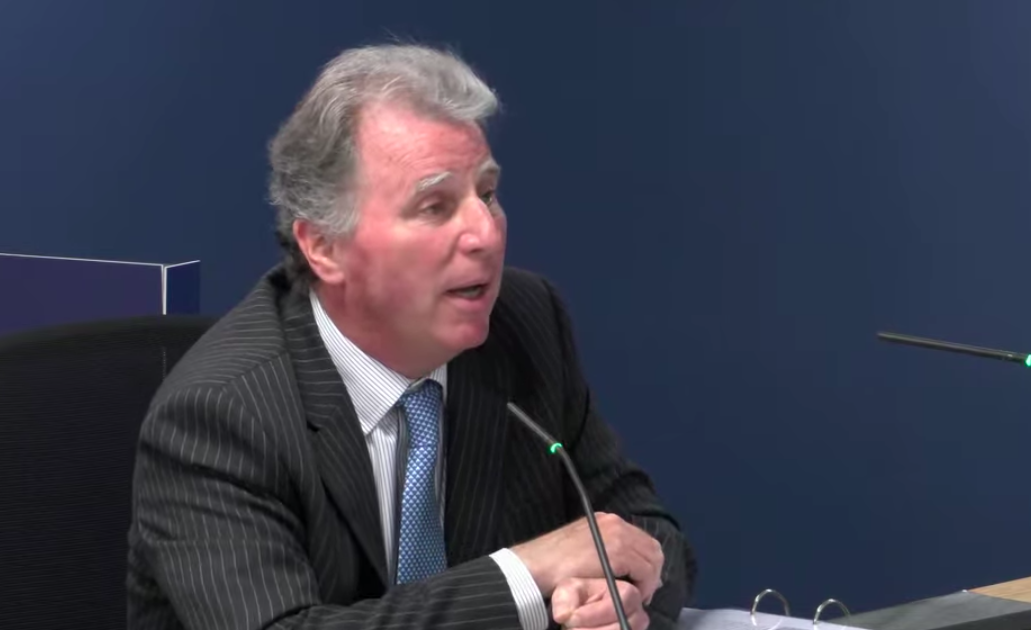
He described the role of minister as “wide ranging and unusual,” but explained resilience was only a “small part” of the role.
He added that there hasn’t been a minister that’s sole purpose was emergency preparedness. Something he called “an error”
Letwin said: “I didn’t have enough time to do as much as I should have done.”
ICYMI: No-deal Brexit ‘crowded out’ UK’s preparations for pandemic, Covid inquiry hears
09:32 , Martha Mchardy
The government’s focus on Brexit “crowded out and prevented” the work that was needed to prepare for the next pandemic, the lead lawyer to the Covid-19 inquiry has said.
Hugo Keith KC told the inquiry that work arising from the threat of a no-deal exit from the EU under Boris Johnson may have drained “the resources and capacity” that were needed for pandemic planning.
The top lawyer told the chair of the inquiry, Baroness Hallett, that a lot of planning had gone into the “severe consequences of a no-deal exit on food and medicine supplies, travel and transport”.
Adam Forrest reports:

Brexit ‘crowded out’ UK’s preparations for Covid, inquiry hears
Cabinet Office refusal to hand over evidence ‘corrosive’, Covid Inquiry hears
08:57 , Martha Mchardy
The Cabinet Office’s refusal to hand over requested documents to the UK Covid-19 Inquiry is “corrosive” and will damage confidence in the process, the opening hearing has been told.
Sam Jacobs, a lawyer representing the Trades Union Congress (TUC), said the department’s position “smacks of having something to hide”.
He warned the “infighting” between Boris Johnson and the Government “jars with the terrible losses” suffered during the pandemic.
Nina Lloyd reports:

Cabinet Office refusal to hand over evidence ‘corrosive’, Covid Inquiry hears
‘Shame on you!’: David Cameron heckled whilst leaving Covid Inquiry
08:14 , Maryam Zakir-Hussain
David Cameron was heckled as he left the Covid Inquiry on Monday, 19 June, after giving evidence.
Shouts of “shame on you” were heard as the former prime minister made his way out of the hearing in London.
The former Conservative leader told the inquiry it was a “mistake” for his government to focus too heavily on preparations for combating a wave of flu rather than a coronavirus-like pandemic.
Mr Cameron his government’s austerity cuts which have been blamed for leaving the NHS in a “parlous state” before the pandemic hit.

‘Shame on you!’: David Cameron heckled whilst leaving Covid Inquiry
‘No doubt’ underfunding ahead of Covid put staff and patients ‘in harm’s way’- BMA
07:55 , Maryam Zakir-Hussain
BMA council chairman Professor Philip Banfield said ahead of Monday’s hearing there was “no doubt that both staff and patients were put in harm’s way” because of underfunding in the decade running up to Covid’s arrival.
In a blog written for the union’s website, he writes: “I have seen first-hand the damage wrought by years of austerity and a failure to prioritise the nation’s health. The UK was severely on the back foot when Covid took hold, and this proved disastrous - for the doctors I represent and the millions who suffered at the hands of the virus.
“It is therefore critical that Cameron, Osborne and Hunt are taken to task over the decisions they made that left us so unprepared, and to ensure the same mistakes are not repeated when we face our next health emergency.”
He added: “The question to Cameron, Osborne and Hunt must be: how did you allow the NHS and public health to get to such a parlous state, and fail to prepare so appallingly, that many didn’t stand a fighting chance when the wave crashed over them?”
George Osborne to give evidence at Covid inquiry today
07:36 , Maryam Zakir-Hussain
George Osborne is due to give evidence to the Covid inquiry today after a doctor’s union said the former chancellor must be “taken to task” over austerity-era decisions that “left us so unprepared” for the pandemic.
In a statement read to the inquiry, Mr Osborne argued that the approach taken following the 2008 financial crisis “had a material and positive effect on the UK’s ability to respond to the Covid-19 pandemic”.
It comes after David Cameron said he is “desperately sorry” for the loss of life during the pandemic on Monday.
The former prime minister also told the UK Covid-19 Inquiry “a lot of things would have followed” if the assumptions on pandemic planning had been challenged.
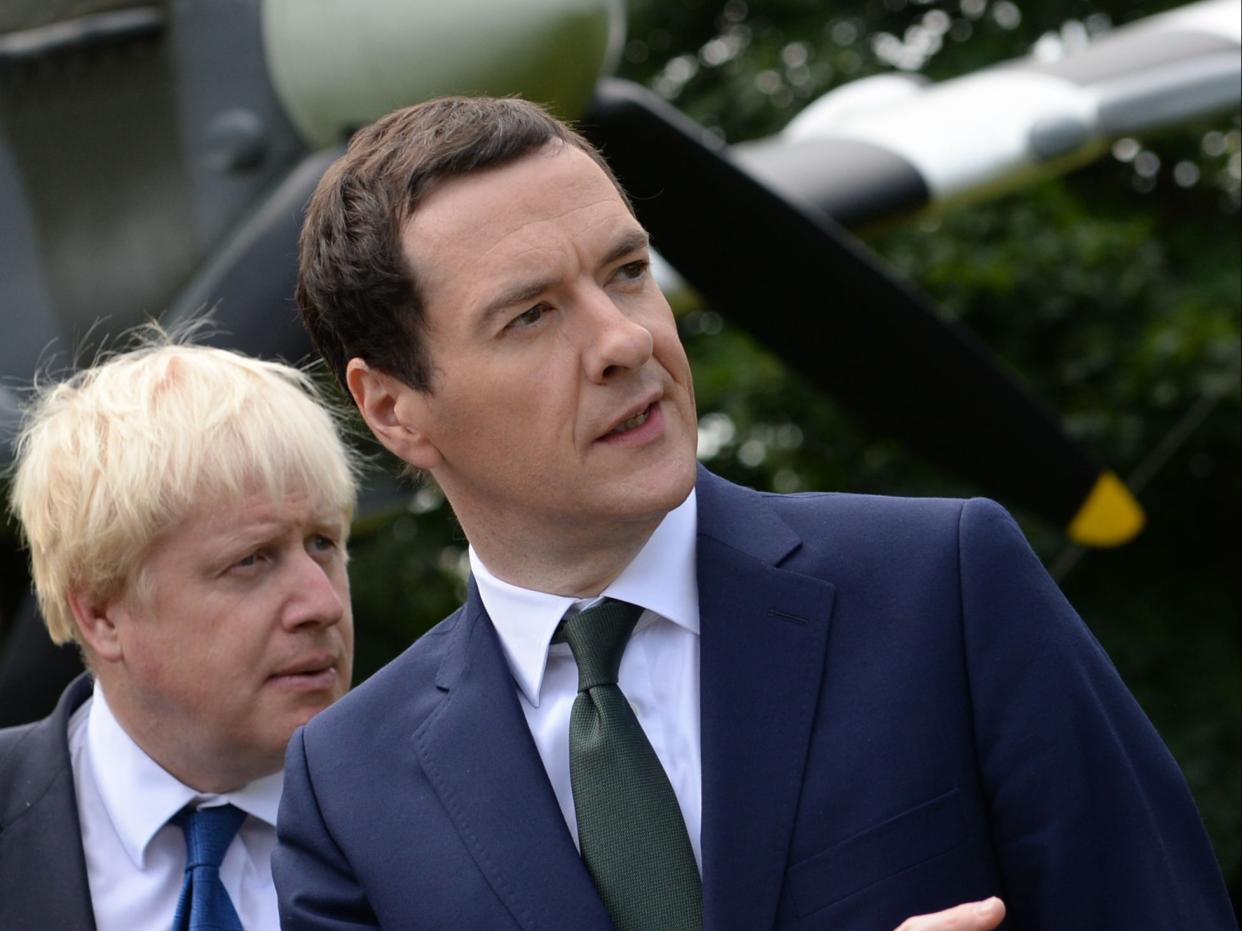
Thank you for reading
Monday 19 June 2023 13:02 , Martha Mchardy
We are pausing our coverage of the Covid inquiry.
We will be back tomorrow to bring you all the latest updates when former Chancellor Geroge Osbourne gives evidence to the inquiry.
Monday 19 June 2023 12:46 , Martha Mchardy
David Cameron has now finished giving evidence to the Covid inquiry.
Who is in charge of keeping the country safe?
Monday 19 June 2023 12:45 , Martha Mchardy
Asked who is in charge of keeping the country safe, Mr Cameron said: “The Prime Minister is always in charge of keeping the country safe and under reforms the Prime Minister was much more actively involved because he was chairing the National Security Council, The National Security Adviser was appointed by him and reported to him, and in my case, I’d set up a specific subcommittee on threats, hazards and resilience that looked exactly at this area with a highly capable minister in.
“I’m sure there are further improvements we can make and the government has announced some, which seemed to me sensible with the proviso that I made, but at the pinnacle of it must be the Prime Minister because from all my experience of chairing Cobras (meetings), whether it was during terrorist problems, or Fukushima nuclear disasters, or Ebola or anything else, the system works extremely well, but the system works better when the Prime Minister is in the chair, asking questions driving changes, and making sure decisions are made. So my answer is it’s the Prime Minister.”
Cameron ‘desperately sorry’ about loss of life during pandemic
Monday 19 June 2023 12:54 , Martha Mchardy
Former prime minister David Cameron said he is “desperately sorry” for the loss of life during the pandemic.
“I’m desperately sorry about the loss of life,” he said. “So many people have lost people that are close to them.
“And there’s been a lot of heartbreak and obviously that continues, and people often suffered in all sorts of ways through the pandemic and that’s why this inquiry is, is so important.”
He added: “I tried to be as frank as I can and as open as I can about the things my government did that helped put in place the right architecture for looking at these threats.”
Cameron: ‘I would have granted funding for 3 months of PPE supplies for every hosiptal if I’d been asked’
Monday 19 June 2023 12:44 , Martha Mchardy
David Cameron said he would have granted funding for three months of personal protective equipment (PPE) for every hospital if he had been asked.
The former prime minister told the UK Covid-19 Inquiry “a lot of things would have followed” if the assumptions on pandemic planning had been challenged.
“In Jeremy Hunt’s evidence hospitals in Hong Kong had to have three months of PPE supplies,” he said.
“I was never asked, ‘Can we have funding for three months of PPE supplies for every hospital?’
“But had I been asked we would’ve granted it, that’s not expensive, that’s not a huge commitment.
“That comes out of planning for the right sort of pandemic, so all these questions about economic policy, we can have an argument about was it the right economic policy or the wrong... I think it was the right economic policy...
“But the real problem was time spent quizzing the experts on what potential pandemics were coming and preparing for those in the right way.”
UK did more than other countries when it came to pandemic planning, says Cameron
Monday 19 June 2023 12:42 , Martha Mchardy
David Cameron said the UK did more than other countries when it came to pandemic planning.
“The problem was that when pandemics were looked at, there was too much emphasis on pandemic flu, and when other pandemics were looked at, including Ebola, including MERS, they tended to be high fatality but low infection,” he said.
“And you know, the regret ... is more questions weren’t asked about the sort of pandemic that we faced.
“But I think many other countries are in the same boat of not knowing what was coming.
“But I would argue we did more than many to try and scan the horizon, to try and plan - we did act on Ebola. We did carry out these exercises. We did try to change some of the international dynamic about these things and we planned and prepared in accordance with that.”
Monday 19 June 2023 12:27 , Martha Mchardy
David Cameron is now being asked questions by a representative to the Scottish Covid Bereaved Families.
Watch: David Cameron tells Covid Inquiry his government spent more time ‘on pandemic flu’
Monday 19 June 2023 12:26 , Martha Mchardy
Jeremy Hunt had ‘considerable concerns’ about structural problems with NHS capacity and funding
Monday 19 June 2023 12:25 , Martha Mchardy
Former health secretary Jeremy Hunt had ‘considerable concerns’ about the structural problems with NHS capacity and funding, his witness statement revealed.
Mr Cameron called Mr Hunt a “very capable” health secretary and defended the record of the government in getting finances under control.
He said: “I will absolutely defend the record of the government in both getting control of the finances and increasing funding for the health service at the same time.”
Monday 19 June 2023 12:22 , Martha Mchardy
David Cameron was asked whether the Government should have implemented the lessons learned from exercise Cygnus by January 2020.
Exercise Cygnus was a three-day simulation exercise carried out by the UK Government in October 2016 to estimate the impact of a hypothetical influenza pandemic on the UK.
He told the Covid-19 inquiry: “I don’t really want to comment on my successors but, I mean, you would hope so. I’ve thought a lot about this because, having been back through all the paperwork and everything, I haven’t found any moment when I was asked or the Treasury was asked to approve sort of surge capacity for PPE supplies or anything like that.
“I think that’s because there wasn’t enough attention on the sort of pandemic that we ultimately experienced, but... these are, as you say, are quite clear, and I think that the Treasury... money was tight and we made difficult decisions about public spending, when we did need to spend money on important priorities, when we had to spend money on ebola, we did and we would.”
The inquiry heard that exercise Alice made recommendations on needing a plan for scaling up testing capacity, for isolation and self-isolation options, for asymptomatic transmission and issues with the provision of PPE.
Mr Cameron was asked whether these matters were addressed during his time in office, to which he replied: “What I know is that there was capacity for isolation, when we had the ebola outbreak in Africa, and obviously there were some cases in the UK.
“But you know, I would say that the problem with Alice was that it was a Mers outbreak with a very high degree of mortality - 35% mortality - but a very low caseload.
“And so, again, that wasn’t anywhere close to the sort of pandemic we then actually experienced.”
Cameron dismisses claim health spending ‘inadequate'
Monday 19 June 2023 12:18 , Martha Mchardy
David Cameron has dismissed claims the health budget over the time of his government was “inadequate”.
“Do you accept that the health budgets over the time of your government were inadequate and led to the depletion of its ability to provide an adequate service?” asked Kate Blackwell KC.
“I don’t accept that,” said Mr Cameron, adding it was necessary to get the budget deficit down.
“Making these difficult choices about spending was - it wasn’t a sort of option that was picked out of thin air. I believed and I still believe it was absolutely essential to get the British economy and British public finances back to health so you can cope with a future crisis.”
Questions over pandemic school closures ‘not asked,’ says Cameron
Monday 19 June 2023 12:11 , Martha Mchardy
Mr Cameron said the pandemic preparedness plan in place by his government “didn’t go into things like school closures”.
He said: “The point is, during my time in office, there were investigations into service to SARS, and MERS and other types of pandemic including Ebola, but there wasn’t one into a highly transmissible Coronavirus style pandemic like we had. And so these questions weren’t asked”.
He said that the prospect of school closure was first raised after he left office.
Challenged on this, Mr Cameron added: “I haven’t seen a report while I was in office, saying that sort of planning should be done because the pandemic preparedness plan - which had been worked up by the previous government and then amended and improved and enhanced during my time in office - there were lots of recommendations made and all sorts of things about stockpiles of Tamiflu and all the rest of it, but it didn’t go into things like school closures.”
Ebola response was ‘ad-hoc,’ says Cameron
Monday 19 June 2023 12:06 , Martha Mchardy
The global response to the Ebola outbreak in west Africa was “ad hoc”, former prime minister David Cameron told the Cvid inquiry.
“With Ebola specifically, there was this sense that the WHO (World Health Organisation) was quite slow to announce that it was happening, also quite slow to ask for help, and the help that was given to Sierra Leone, to Guinea and Liberia was very much ad hoc,” he said.
“At a meeting - it was at a Nato summit - I was sitting next to (US president Barack) Obama, and he said ‘Look, the world’s been too slow on this. We will help with Liberia. Can you help with Sierra Leone? Can the French help with Guinea?
“And it was quite an ad hoc response.
“We spent half a billion pounds, sending troops and nurses and all the rest of it, and I think they did a magnificent job, but it was by ad hoc.”
Former PM denies he left government unprepared for pandemic
Monday 19 June 2023 12:04 , Martha Mchardy
Kate Blackwell KC asked Mr Cameron: “By the time you left government in 2016 there wasn’t whole sale preparation and resilience was there?”
The former prime minister replied: “I don’t accept that, because we set up a much superior architecture for looking at risks, for judging risks and planning for risks.”
He added: “We did more than many to try and scan the horizon, to try and plan. We did act on Ebola, we did carry out these exercises, we did try to change some of the international dynamics of these things.”
Oliver Letwin’s witness statement in full
Monday 19 June 2023 11:59 , Martha Mchardy
The UK Covid-19 Inquiry heard a witness statement from Oliver Letwin, who was a Cabinet Office minister from 2010 to 2016 and in charge of resilience under prime minister David Cameron.
It said: “During this period, 2011 to 2016, I was not directly involved in planning for the Government’s response to pandemic influenza in the UK.
“In retrospect, it may seem surprising that my resilience reviews did not cover this issue, given the fact that pandemic influenza was ranked high both in terms of impact and in terms of likelihood on the national risk register.
“The reason was that I was informed by Cabinet Office officials, when I initiated the resilience review process in 2012, that an unusually large amount of attention had already been focused on this particular threat because of its position in the national risk register.
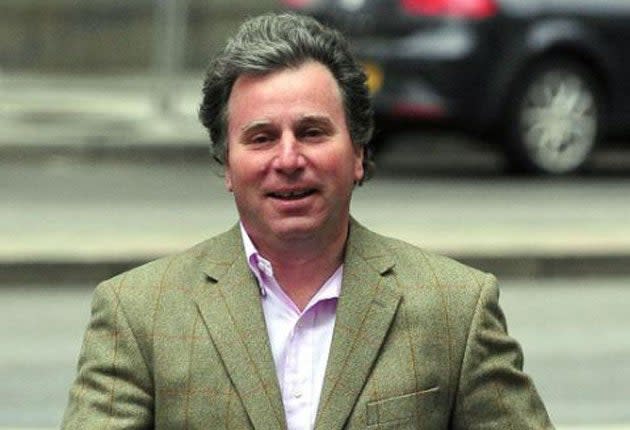
“That, as a result, the UK was particularly well-prepared to deal with pandemic influenza, that the Department of Health was preparing to carry out a major exercise to test our national capabilities in the face of pandemic influenza, and that my time would therefore be better spent examining other whole-system risks for which line departments might be much less well-prepared.
“I now believe, however, that it might have been helpful if I had delved into the pandemic influenza risks myself... This is not because I believe such a review would have been likely to lead to any significant improvements in our preparedness for a pandemic flu itself, but rather because it might have led me to question whether we were adequately prepared to deal with the risks of forms of respiratory disease other than pandemic influenza.”
Mr Cameron told the inquiry he did not think Mr Letwin had ignored the risks of other pandemics.
The former PM added that ex-chief medical officer Sally Davies “has said, there is always a danger of groupthink, and perhaps that’s what was happening here - that we were so focused, or the system was so focused, on pandemic influenza because of the well-known risks of it, that the system had got itself into a belief that that was the most likely pandemic and that was the one that needs to be prepared for. And so I think Oliver’s statement is very powerful.”
Monday 19 June 2023 11:57 , Martha Mchardy
David Cameron said there had been a “failing” in preparing for a type of Covid-19-like pandemic.
The former prime minister told the UK official inquiry: “I don’t think it’s right to say the government only looked at pandemic flu, it didn’t look at other things - the risk registers and other documents mention Mers and Sars and other types of pandemics.
“So I think that wasn’t a failing; I think the failing was not to ask more questions about asymptomatic transmission, highly infectious... what turned out to be the pandemic we had.”
He questioned whether there had been “adequate follow-up to some of the work”.
‘Mistake not to look at other types of pandemic,’ says Cameron
Monday 19 June 2023 11:39 , Martha Mchardy
“I think it was a mistake not to look at more at the range of different types of pandemic,” said Mr Cameron.
“The failing was not to ask more questions about asymptomatic transmission,” he added.
Asked about Dame Deirdre Hine’s independent review into swine flu, he said: “My reaction to reading Hine was, like many of the other reports, it doesn’t mention the potential for asymptomatic transmission.
“And so, you know, when you think what would be different if more time had been spent on a highly infectious, asymptomatic pandemic, different recommendations would have been made about what was necessary to prepare for that.”
‘Flu pandemics prioritised over others,’ says Cameron
Monday 19 June 2023 11:32 , Martha Mchardy
David Cameron told the UK Covid-19 Inquiry: “This is the thing I keep coming back to, which is that pandemic was a ‘tier one risk’ - pandemics were looked at, but ... much more time was spent on pandemic flu and the dangers of pandemic flu rather than on potential pandemics of other more respiratory diseases like Covid turned out to be.
“And, you know, I think this is so important because so many consequences follow from that.
“And I’ve been sort of wrestling with... I think the architecture (to deal with large-scale emergencies) was good - the National Security Council, the National Security Adviser, the risk register, and also this new security risk assessment, which was perhaps a bit more dynamic.
“But that’s where I keep coming back to... is, so much time was spent on a pandemic influenza and that was seen as the greatest danger - and we had very bad years for flu so it is a big danger...
“But why wasn’t more time and more questions asked about what turned out to be the pandemic that we faced?
“It’s very hard to answer why that’s the case. And I’m sure this public inquiry is going to spend a lot of time on that.”
‘My government was very concerned about pandemics,’ says Cameron
Monday 19 June 2023 11:23 , Martha Mchardy
Former prime minister David Cameron said his government was “very concerned” about pandemics but may not have spent enough time preparing for viruses other than flu.
He said: “I think this was a government and Prime Minister that was very concerned about potential pandemics and about dangerous pathogens and the bad things like antimicrobial resistance and all the rest of it so we weren’t backward in thinking about it. But it does still come back to this issue of why so much time spent on a flu pandemic and not so much on these others.”
He added: “The pandemic was a tier one risk. Pandemics were looked at but... much more time was spent on the danger of pandemic flu rather than potential pandemics of other, more respiratory diseases.”
Watch: Cameron refuses to answer if Boris Johnson has 'damaged reputation of Tory party'
Monday 19 June 2023 11:11 , Martha Mchardy
David Cameron begins giving evidence to the Covid inquiry
Monday 19 June 2023 11:08 , Martha Mchardy
Former prime minister David Cameron has begun giving evidence to the Covid inquiry in London.
The session began by Mr Cameron being sworn in.
The former prime minister is the first politician to appear at the inquiry under oath.
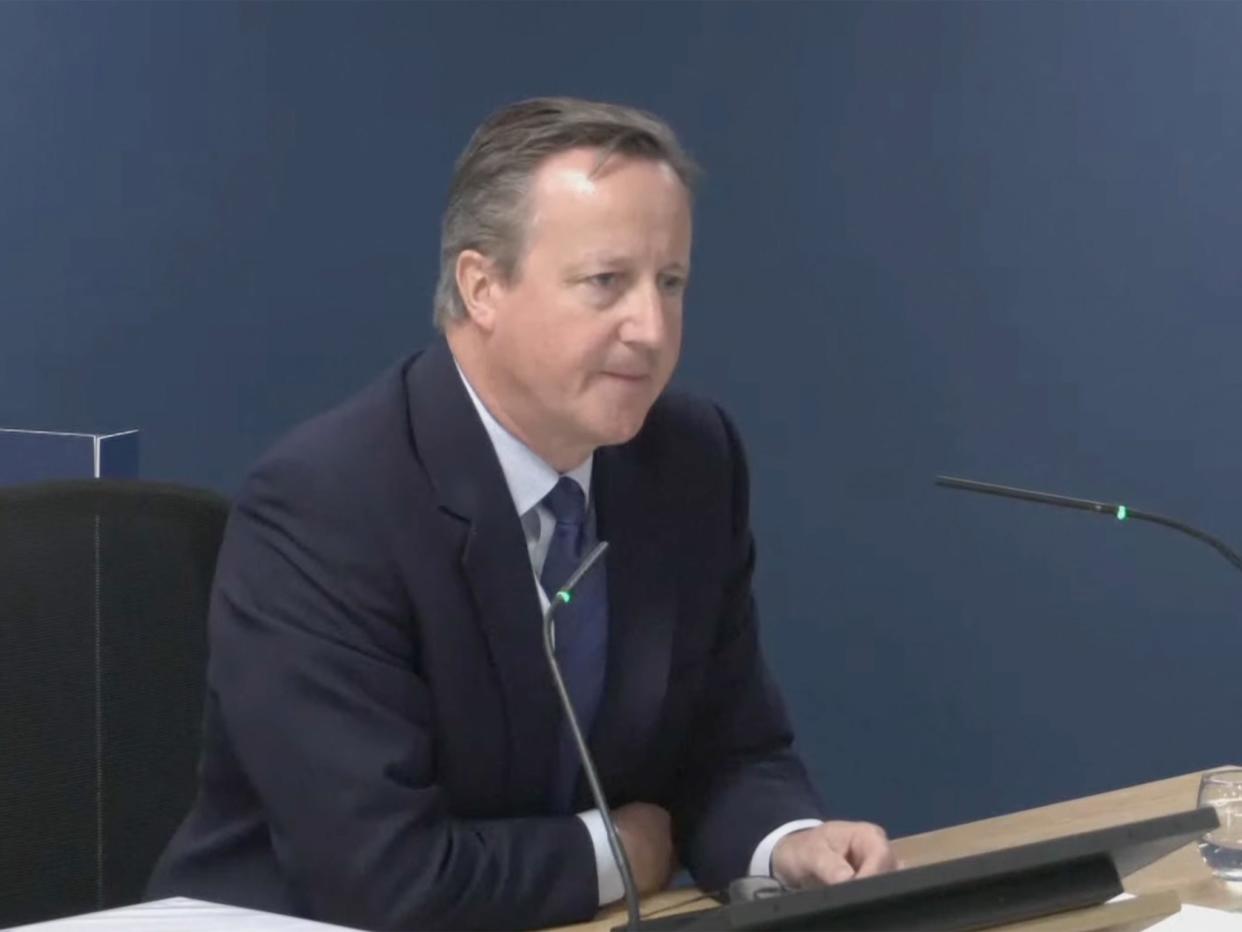
Watch live: David Cameron speaks to Covid Inquiry in the second week of investigation
Monday 19 June 2023 11:06 , Martha Mchardy
Watch live as the UK’s Covid inquiry continues, with David Cameron expected to give evidence on Monday 19 June.
The former prime minister has been accused of an “appalling” failure to properly prepare the UK for the pandemic and will be questioned on how austerity impacted the UK’s ability to deal with the virus.
Ahead of the session, the British Medical Association launched a scathing attack on Mr Cameron and said government cuts to NHS funding “left us so unprepared” for the pandemic.
“The UK was severely on the back foot when Covid took hold, and this proved disastrous - for the doctors I represent and the millions who suffered at the hands of the virus,” Professor Philip Banfield, the BMA council chair and a consultant obstetrician of 30 years, said.
“‘No healthcare system could have come through a pandemic unscathed’ is the defence often parroted by those who were calling the shots.
“But the question to Cameron, [George] Osborne and [Jeremy] Hunt must be: how did you allow the NHS and public health to get to such a parlous state, and fail to prepare so appallingly, that many didn’t stand a fighting chance when the wave crashed over them?”

Live: David Cameron speaks to Covid Inquiry in the second week of investigation
David Cameron arrives at Covid inquiry to give evidence
Monday 19 June 2023 10:54 , Martha Mchardy
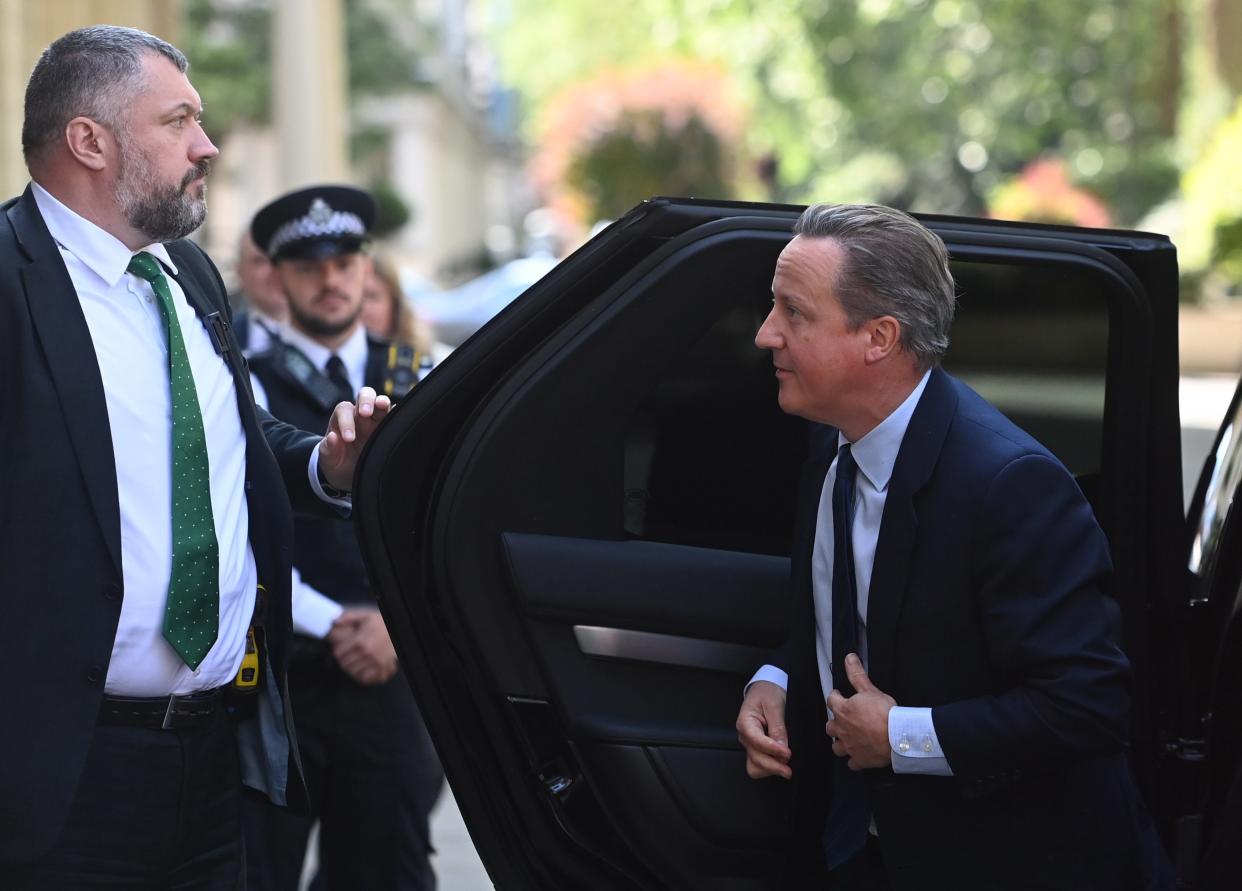
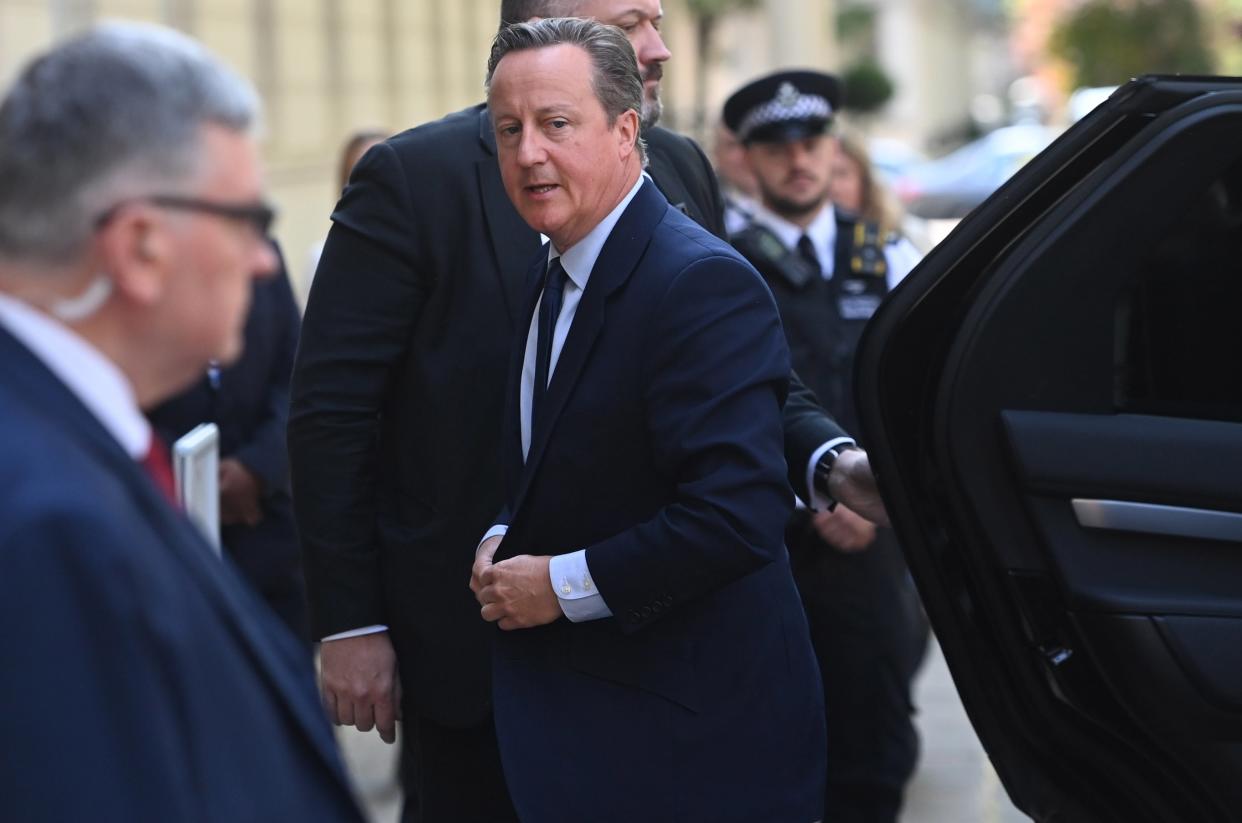
Everything you need to know about public hearings into UK’s pandemic response
Monday 19 June 2023 10:48 , Martha Mchardy
The UK Covid-19 Inquiry opened its first public hearing on 13 June in London, beginning a three-year investigation into the British government’s response to the coronavirus pandemic.
The inquiry will seek to understand the decision-making that led to the imposition of strict lockdown measures on the public, how our evolving understanding of the virus guided policy, what the government got right and what mistakes were made, with a view to being better prepared for future pandemics and public health emergencies.
When then-prime minister Boris Johnson announced the first “stay at home” order on 23 March 2020, British citizens came together in a rare moment of national unity, for the most part, diligently adhering to social restrictions introduced to help stop the spread of the contagious respiratory disease.
Joe Sommerlad reports:

Everything you need to know about the Covid inquiry
ICYMI: Doctor ‘flabbergasted’ bereaved families not called as Covid Inquiry witnesses
Monday 19 June 2023 09:55 , Martha Mchardy
A doctor whose father died after contracting Covid has said the inquiry will be a “farce” if bereaved families are not able to give evidence.
The Covid Bereaved Families for Justice group had put forward 20 people to be considered as witnesses for the first module of the Covid-19 Inquiry, but said none have been called to give evidence.
Six weeks of hearings are planned for the first module of the inquiry, which will focus on resilience and preparedness.
Former prime minister Mr Cameron will become the first politician to appear under oath at the inquiry when he is sworn in today at 11am, the inquiry has said.
He will be followed by former chancellor Mr Osborne, as well as Jeremy Hunt, the current Chancellor who served as health secretary in the austerity-era Government of the 2010s.
Jordan Reynolds reports:

Doctor ‘flabbergasted’ bereaved families not called as Covid Inquiry witnesses
ICYMI: Cameron-Osborne austerity left UK ‘hugely unprepared’ for Covid, says report
Monday 19 June 2023 09:25 , Martha Mchardy
The UK was hugely unprepared for the Covid crisis because of years of austerity overseen by David Cameron and George Osborne, according to a report.
The Trades Union Congress (TUC) said that funding cuts reduced the country’s capacity to respond to the crisis, leaving the NHS and the social care sector “dangerously understaffed”.
Public services capacity was damaged by “steep cuts” to almost every part of the public sector, the union added.
Safe staffing levels in health and social care were undermined by a series of pay caps and pay freezes over a number of years, which impeded recruitment and increased staff turnover, the report found.
Mr Cameron and Mr Osborne are expected to push back against the claims of the damage done by austerity cuts when they give evidence to the Covid inquiry today.
Adam Forrest reports:

Cameron-Osborne austerity left UK ‘hugely unprepared’ for Covid, says report
‘No doubt’ underfunding put 'patients and staff put in harm’s way,’ says BMA council chairman
Monday 19 June 2023 09:00 , Martha Mchardy
There was “no doubt that both staff and patients were put in harm’s way” because of underfunding in the decade running up to Covid‘s arrival, BMA council chairman Professor Philip Banfield said ahead of the Covid inquiry hearing today.
In a blog written for the union’s website, he writes: “I have seen first-hand the damage wrought by years of austerity and a failure to prioritise the nation’s health. The UK was severely on the back foot when Covid took hold, and this proved disastrous - for the doctors I represent and the millions who suffered at the hands of the virus.
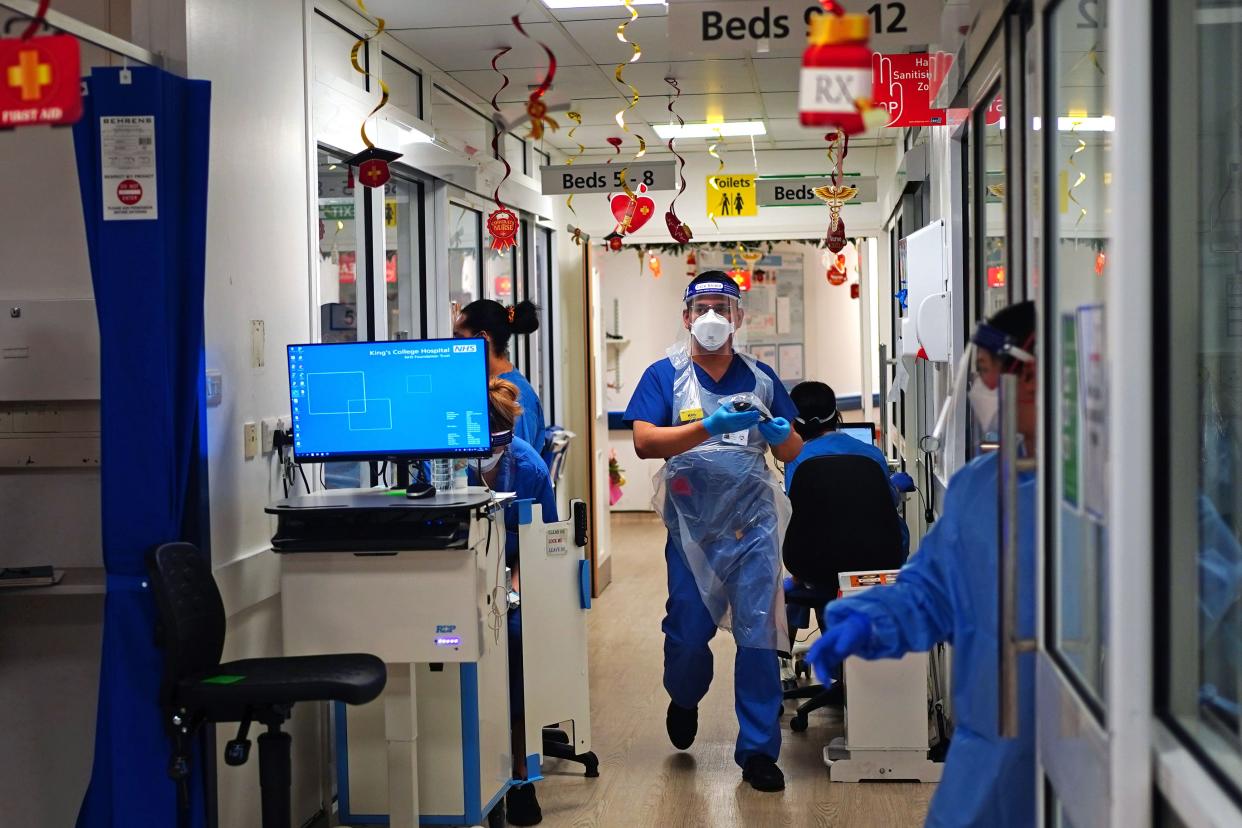
“It is therefore critical that Cameron, Osborne and Hunt are taken to task over the decisions they made that left us so unprepared, and to ensure the same mistakes are not repeated when we face our next health emergency.”
He added: “The question to Cameron, Osborne and Hunt must be: how did you allow the NHS and public health to get to such a parlous state, and fail to prepare so appallingly, that many didn’t stand a fighting chance when the wave crashed over them?”
The BMA and the Trades Union Congress are among core participants to the inquiry.
UK entered pandemic with ‘depleted’ public services and widening health inequalities, inquiry heard
Monday 19 June 2023 08:45 , Martha Mchardy
The UK entered the coronavirus pandemic with “depleted” public services and widening health inequalities, the inquiry heard last week.
A report prepared jointly by Prof Sir Michael Marmot, an expert in epidemiology and director of the University College London Institute of Health Equity, and Prof Clare Bambra, an expert in public health from Newcastle University, said austerity policies affected the health of the nation in the lead up to the pandemic.
The British Medical Association (BMA) today said David Cameron and George Osborne must be “taken to task” at the Covid inquiry over austerity-era decisions that “left us so unprepared” for the pandemic.
The doctors’ union said the pair should be questioned this week about the “parlous state” of the NHS due to a decade of spending cuts.
David Cameron is due to give evidence to the inquiry at 11am today. He will be followed by George Osbourne andformer health secretary Jeremy Hunt.
What will the inquiry examine and who is giving evidence?
Monday 19 June 2023 08:28 , Martha Mchardy
The inquiry will examine how prepared the UK was for the pandemic, meaning economic policies in the years leading up to the first outbreak will be taken into its wide remit.
Former prime minister Mr Cameron will become the first politician to appear under oath when he is sworn in on Monday at 11am, the inquiry has said.
He will be followed by former chancellor Mr Osborne, as well as Jeremy Hunt, the current Chancellor who served as health secretary in the austerity-era Government of the 2010s.
It is unclear how long each witness will spend giving evidence.
ICYMI: No-deal Brexit ‘crowded out’ UK’s preparations for pandemic, Covid inquiry hears
Monday 19 June 2023 08:20 , Matt Mathers
The government’s focus on Brexit “crowded out and prevented” the work that was needed to prepare for the next pandemic, the lead lawyer to the Covid-19 inquiry has said.
Hugo Keith KC told the inquiry that work arising from the threat of a no-deal exit from the EU under Boris Johnson may have drained “the resources and capacity” that were needed for pandemic planning.
Adam Forrest reports:

Brexit ‘crowded out’ UK’s preparations for Covid, inquiry hears
Recap: Everything you need to know about public hearings into UK’s pandemic response
Monday 19 June 2023 08:05 , Matt Mathers
The UK Covid-19 Inquiry opened its first public hearing on 13 June in London, beginning a three-year investigation into the British government’s response to the coronavirus pandemic.
The inquiry will seek to understand the decision-making that led to the imposition of strict lockdown measures on the public, how our evolving understanding of the virus guided policy, what the government got right and what mistakes were made, with a view to being better prepared for future pandemics and public health emergencies.
Joe Sommerlad has a full rundown of what the inquiry is about:

Everything you need to know about the Covid inquiry
Cameron attacked by BMA ahead of evidence
Monday 19 June 2023 07:51 , Matt Mathers
David Cameron and George Osborne must be "taken to task" at the Covid inquiry over austerity-era decisions that "left us so unprepared" for the pandemic, a doctors’ union has said.
The British Medical Association (BMA) said the pair should be questioned this week about the "parlous state" of the NHS due to a decade of spending cuts.
BMA council chairman Professor Philip Banfield said ahead of Monday’s hearing there was "no doubt that both staff and patients were put in harm’s way" because of underfunding in the decade running up to Covid’s arrival.
In a blog written for the union’s website, he writes: "I have seen first-hand the damage wrought by years of austerity and a failure to prioritise the nation’s health. The UK was severely on the back foot when Covid took hold, and this proved disastrous - for the doctors I represent and the millions who suffered at the hands of the virus.
"It is therefore critical that Cameron, Osborne and Hunt are taken to task over the decisions they made that left us so unprepared, and to ensure the same mistakes are not repeated when we face our next health emergency."
Nina Lloyd reports:

David Cameron and George Osborne to blame for NHS’s ‘disastrous’ Covid response
David Cameron to appear at 11am
Monday 19 June 2023 07:47 , Matt Mathers
Former prime minister Mr Cameron will become the first politician to appear under oath when he is sworn in on Monday, the inquiry has said.
He will be followed by former chancellor Mr Osborne, as well as Jeremy Hunt, the current Chancellor who served as health secretary in the austerity-era Government of the 2010s.
The inquiry will examine how prepared the UK was for the pandemic, meaning economic policies in the years leading up to the first outbreak will be taken into its wide remit.
It is unclear how long each witness will spend giving evidence.
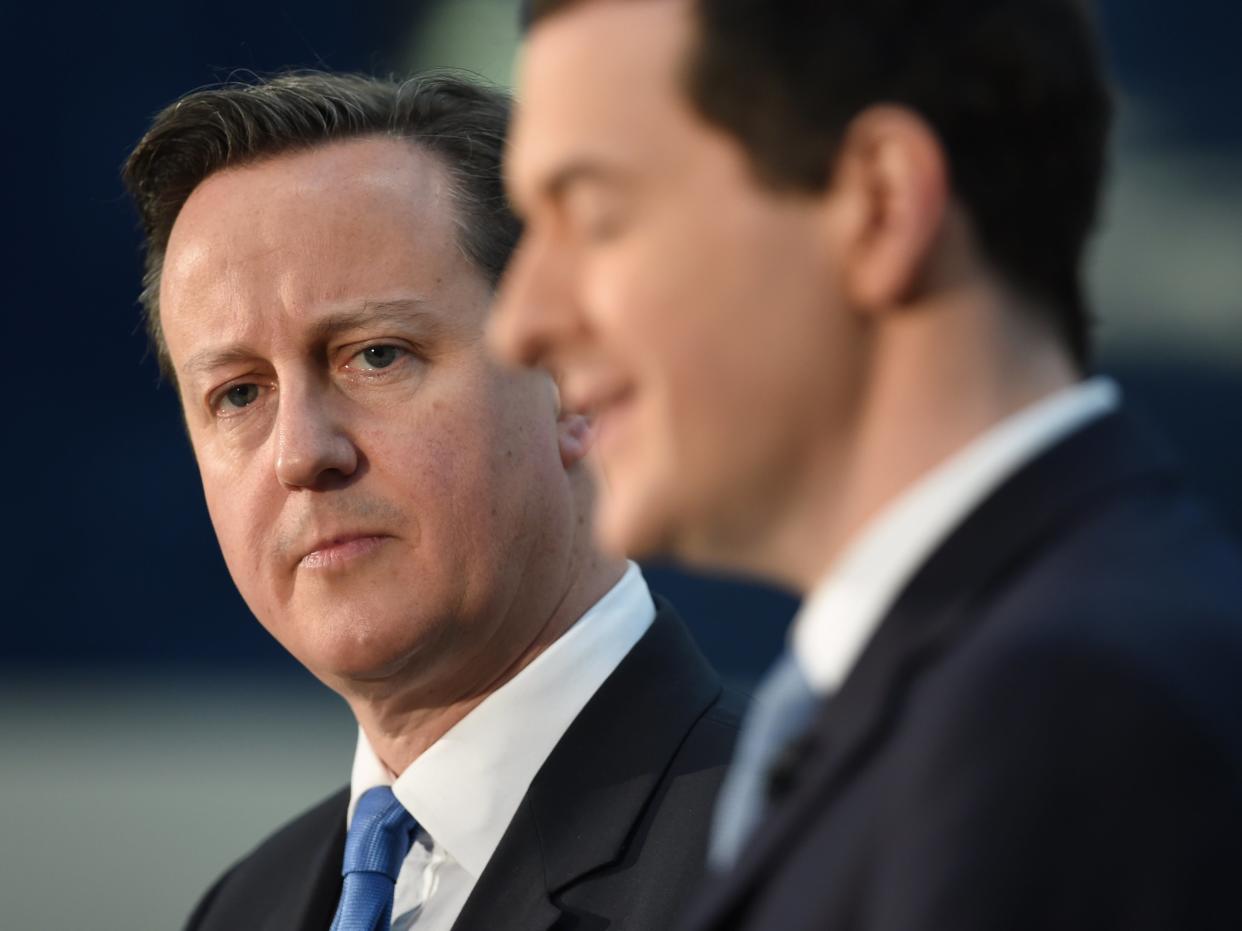
Monday 19 June 2023 07:45 , Matt Mathers
Good morning and welcome to The Independent’s live coverage of the Covid 19 Inquiry.
We’ll bring you updates throughout the day as former prime minister David Cameron prepares to give evidence.
Mr Cameron is due to appear at 11am and will be followed by his former chancellor George Osborne and health secretary Jeremy Hunt, the current chancellor.
